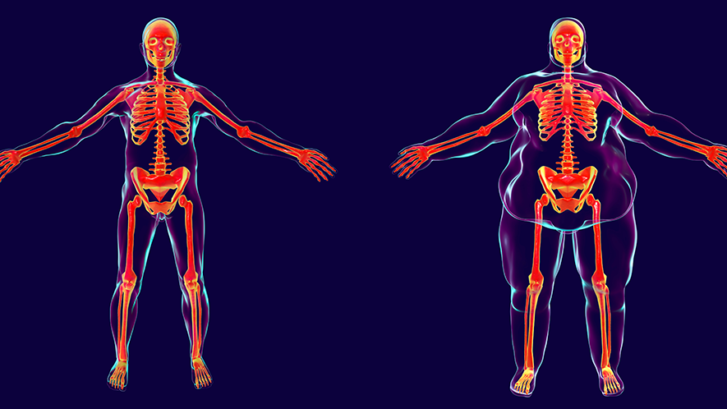Obesity Is a Little-Known Cancer Risk
When you think of ways to prevent cancer, you think of stopping smoking, avoiding the sun, getting regular screenings, and so on. But one way that might not occur to you is losing weight.
Therefore, our concierge family practice doctors in Jupiter thought you should know that there are 13 different types of cancer linked to overweight and obesity.
The risk
A recent article in The Washington Post reported that, although smoking is the number one preventable cause of cancer, killing more than 500,000 people in this country every year, “obesity is poised to take the top spot, as Americans’ waistlines continue to expand while tobacco use plummets.” It also appears that the more overweight a person is, the higher the cancer risk.
According to the National Institutes of Health (NIH), the types of cancer that may be influenced by overweight include:
- esophageal
- thyroid
- colon
- renal
- liver
- melanoma
- multiple myeloma
- rectal
- gallbladder
- leukemia
- lymphoma
- prostate in men
- post-menopausal breast and endometrial in women
Being overweight also makes it more difficult to survive once a cancer is diagnosed.
The American Cancer Society (ACS) says that excess body weight is thought to be responsible for about eight percent of all cancers in the United States, as well as about seven percent of all cancer deaths. In addition, having too much belly fat, regardless of body weight, is linked with an increased risk of colon and rectal cancer, and is probably linked to a higher risk of cancers of the pancreas, endometrium, and breast cancer in post-menopausal women.
The reasons
Despite the apparent links, researchers are not certain of the reason that increased weight raises the risk of cancer. But they do have some theories. The ACS believes that timing of weight gain plays a role.
“Being overweight during childhood and young adulthood might be more of a risk factor than gaining weight later in life for some cancers,” the ACS says. “For example, some research suggests that women who are overweight as teenagers (but not those who gain weight as adults) may be at higher risk for developing ovarian cancer before menopause.”
The Post reports that researchers are homing in on the “visceral” fat that surrounds internal organs as the culprit.
“Rather than being a harmless glob, this fat is a ‘metabolically active organ’ that produces hormones such as estrogen, which is associated with a higher risk of breast and some other cancers, according to the American Institute for Cancer Research. . . . The fat also secretes proteins that drive insulin levels higher, which may spur cell growth and increase the possibility of cancer. And it can cause chronic inflammation, another risk factor for the disease, according to the group.”
“It’s a complex interplay of metabolism, inflammation, and immunity,” Jennifer Ligibel, a breast oncologist at the Dana-Farber Cancer Institute, told the paper. “It creates an environment that is more permissive for cancer.”
It’s also possible that lifestyle choices which cause overweight—poor diet and lack of exercise—are themselves contributing factors.
The upshot
While the effect of losing weight on reducing cancer risk is still uncertain, the ACS believes reducing body weight is a good move.
“Some body changes that occur as a result of weight loss suggest it may, indeed, reduce cancer risk. For example, overweight or obese people who intentionally lose weight have reduced levels of certain hormones that are related to cancer risk, such as insulin, estrogens, and androgens.”
To improve cancer odds, Ligibel of Dana-Farber told The Post that even a five percent reduction in body weight produces a beneficial result on blood sugar and inflammation.
We know dieting is difficult, but the results are well worth it, not only in reducing the risk of cancers and heart disease, but in improved quality of life overall. If you are overweight, please see us for tips and advice on simple ways to slim down.

